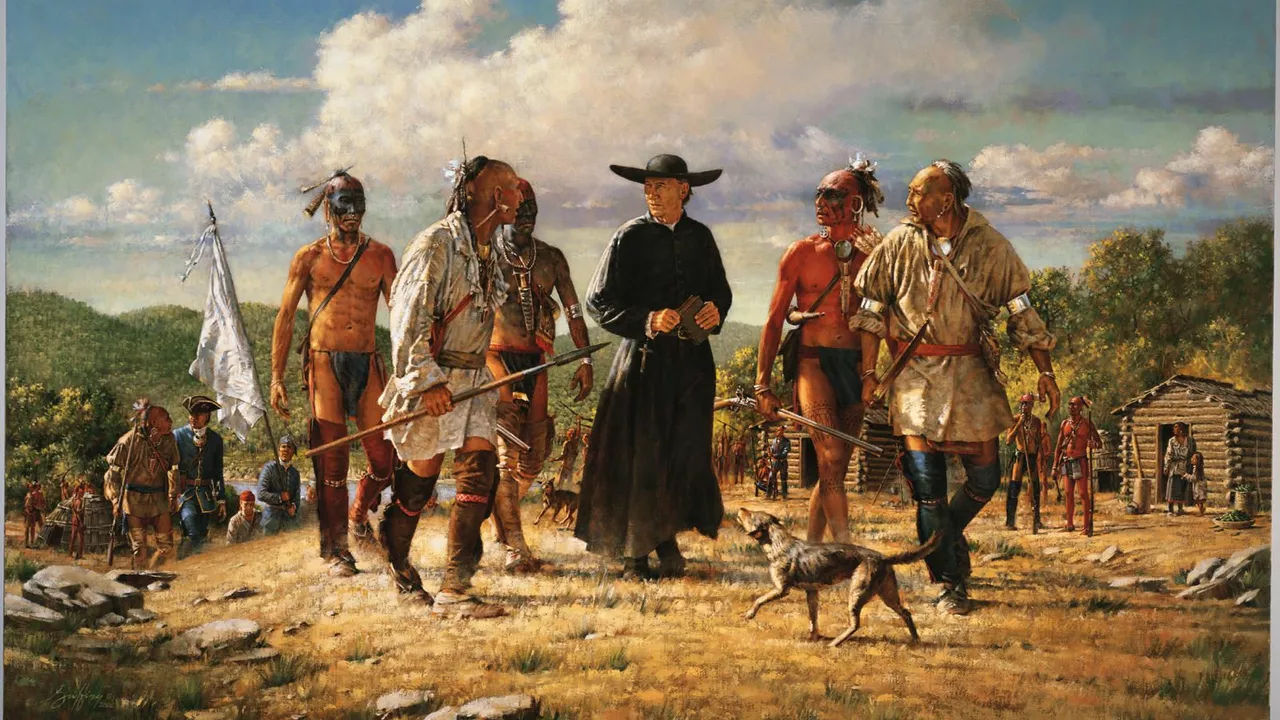The Concept of Discovery and Ownership
Let's kick things off with a bit of historical context. We all remember from our history classes that Europeans "discovered" the New World. It's fascinating to think about the sheer audacity of that claim. Imagine walking into a place with people already living there, and proclaiming, "Look what I discovered!" Like when your sibling ate the cookies you hid in the fridge, and claimed, "But I discovered them!" This so-called "discovery," in reality, was a heartbreaking disregard for the rights and humanity of the people already living here, the Native Americans. What Europeans mainly discovered was a simplistic way to justify their entitlement over someone else's property. Now, wouldn't it have been easier if they just coexisted with the Native Americans, instead? Well yes, in an ideal world, that would've made a lot of sense. Allow me to elaborate.
Clashes of Culture and Perception
But it's crucial to delve into another key issue – the gap between the European mindset and the Native American way of life, which caused considerable friction between the two groups. Europeans came with a mindset, deeply influenced by thousands of years of history, marked by feudalism, wars, monarchy, and the constant pursuit of wealth and power. On the other hand, we had the Native Americans, who had a communal view of life, where the concept of ownership was not cherished, and land was shared and respected. From a personal account, I remember visiting a Native American museum in my youth, where the guide emphasized this inherent social structure within their culture. It was a tale of two worlds, that unfortunately, couldn't see eye-to-eye.
Ascendncy of European Might and Religion
Let's not forget the pachyderm in the room – the European sense of superiority. The Old World came with a belief that their culture, their faith, was superior and ordained by God himself. To them, they were agents of divine manifest destiny, tasked with the mission to civilize and save these "heathens". To give you some perspective, imagine you cooking a delicious pasta, only for me to come over, insist you do it wrong, and start adding spices and curry into it in the name of "improvement". Funny and frustrating, isn’t it? Right, so you get the point!
The Lust for Land and Resources
Lastly, but not least, let's talk about the irresistible pull of resources and wealth. The Europeans wanted the land, no two ways about it. America was considered the land of opportunities, a place rich with resources that could feed the economies of growing empires. The journey through history isn't all rainbows and unicorns, even if we imagine every explorer with a cute, white, fluffy unicorn with a shiney horn. No, sadly it was also about the acquisition of money, power, and resources, and the Native Americans simply stood in the way.
Disunity Among Native Tribes
Then we have the aspect of internal bickering and disunity among the Native American tribes, which further tipped the scales in the favor of the Europeans. It's not unlike when you and your friends cannot decide what movie to watch, and that one friend who has the loudest voice (and sometimes the remote) ends up deciding for the group. Unfortunately, in the historical context, this division among Native Americans led to catastrophe, as they failed to present a united front against the European settlers.
Natives Vs Europeans: A Look Through the Mirror of Time
I can perhaps best explain the concept through an anecdote from my own life. Once while being part of a football team at college, we had a new bunch of freshmen join us. We, senior members, were comfortable with our dynamics and practiced strategies. Then these freshmen came with their own ideas and tactics, causing friction within the team. It was like two entirely different worlds colliding. Only a sheer misfortune of fate can outshadow the irony of how this debacle unfolded, with the "discoverers" becoming "invaders" and the native owners of the land being reduced to mere "savages". Once a prosperous and peaceful New World, packed with countless cultures, languages and traditions, was swiftly overrun by the European invasion. Could the Europeans have lived peacefully side by side with the Native Americans? Possibly. But the realities of the time, marked by cultural misperceptions, religious zealotry, greed for land and wealth, and an imposed sense of superiority, made such an amicable coexistence an almost impossible dream. Even though it's a somber note to end our enlightening journey on, it serves as a stark reminder of the lessons from our past. A past that we should earnestly learn from to build a better, more empathetic world.



